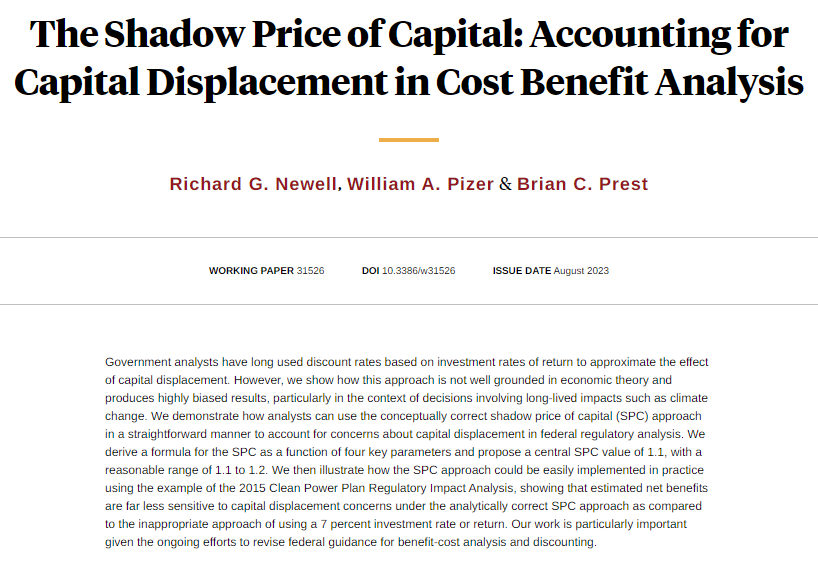
Brian Prest
@bprest
Economist @rff, via @DukeU, @NERA_Economics, & @USCBO. Opinions my own.
ID: 200912145
http://www.brianprest.com 10-10-2010 16:23:58
573 Tweet
683 Followers
1,1K Following

Psyched about this new Resources for the Future working paper from Brian Prest, Zach Whitlock, & me. It asks: in a future with more ambitious climate policies, what happens to oil and gas production in different US regions, and how does that affect local gov't revenue? 1/8 rff.org/publications/w…


Discounting in benefit-cost analysis using investment rates of return can yield very misleading estimates of the costs and benefits of policies with long-lived impacts, from Richard Newell, Billy Pizer, and Brian Prest nber.org/papers/w31526


We have a paper out in Science Magazine today showing how new guidelines allowing for income weighting in federal cost-benefit analysis would affect the social cost of carbon. Main takeaway, the SC-CO2 increases nearly 8x to ~$1300/ton. Resources for the Future ERGBerkeley science.org/doi/10.1126/sc…

My analysis on potential impacts of expanded US LNG exports is available here zenodo.org/records/137383… @RFF's analysis of oil & gas leasing led by Brian Prest can be found here rff.org/publications/i… One can read these and verify the letter's statement is incorrect.
